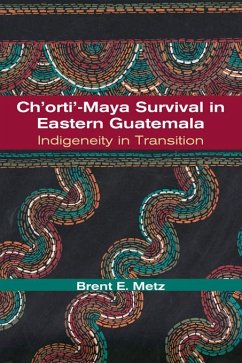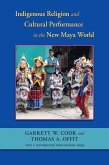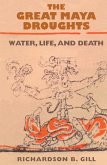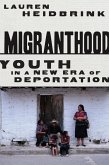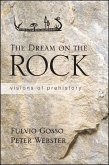Scholars and Guatemalans have characterized eastern Guatemala as "Ladino" or non-Indian. The Ch'orti' do not exhibit the obvious indigenous markers found among the Mayas of western Guatemala, Chiapas, and the Yucatán Peninsula of Mexico. Few still speak Ch'orti', most no longer wear distinctive dress, and most community organizations have long been abandoned.
During the colonial period, the Ch'orti' region was adjacent to relatively vibrant economic regions of Central America that included major trade routes, mines, and dye plantations. In the twentieth century Ch'orti's directly experienced U.S.-backed dictatorships, a 36-year civil war from start to finish, and Christian evangelization campaigns, all while their population has increased exponentially. These have had tremendous impacts on Ch'orti' identities and cultures.
From 1991 to 1993, Brent Metz lived in three Ch'orti' Maya-speaking communities, learning the language, conducting household surveys, and interviewing informants. He found Ch'orti's to be ashamed of their indigeneity, and he was fortunate to be present and involved when many Ch'orti's joined the Maya Movement. He has continued to expand his ethnographic research of the Ch'orti' annually ever since and has witnessed how Ch'orti's are reformulating their history and identity.
During the colonial period, the Ch'orti' region was adjacent to relatively vibrant economic regions of Central America that included major trade routes, mines, and dye plantations. In the twentieth century Ch'orti's directly experienced U.S.-backed dictatorships, a 36-year civil war from start to finish, and Christian evangelization campaigns, all while their population has increased exponentially. These have had tremendous impacts on Ch'orti' identities and cultures.
From 1991 to 1993, Brent Metz lived in three Ch'orti' Maya-speaking communities, learning the language, conducting household surveys, and interviewing informants. He found Ch'orti's to be ashamed of their indigeneity, and he was fortunate to be present and involved when many Ch'orti's joined the Maya Movement. He has continued to expand his ethnographic research of the Ch'orti' annually ever since and has witnessed how Ch'orti's are reformulating their history and identity.
Dieser Download kann aus rechtlichen Gründen nur mit Rechnungsadresse in A, D ausgeliefert werden.

